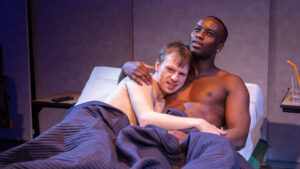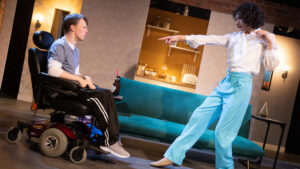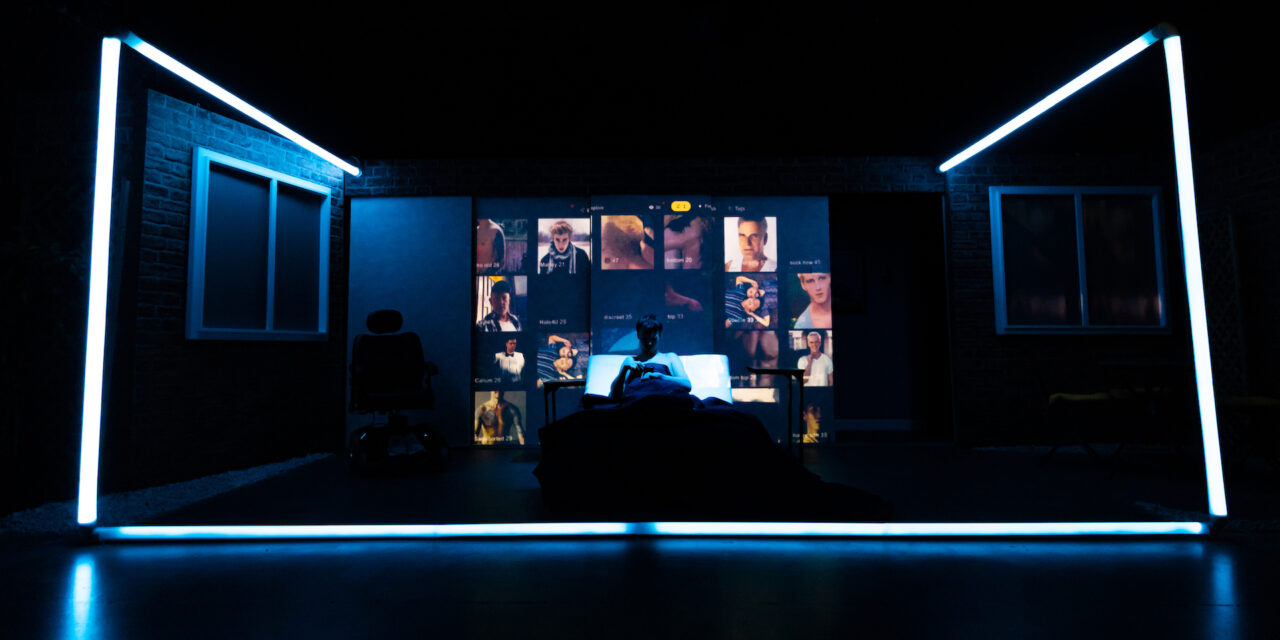
12 – 15 April
Josh Hepple and Jon Bradfield’s collaborative writing has given birth to a play that many will have been waiting for – articulating some of the barriers that may be faced by a disabled person in need of love and with a desire to express themselves sexually. In the character of David, we have a desperately horny gay 25-year old who is unable to masturbate because of the limitations of his physical movement due to cerebral palsy. The first scene’s dalliance with the futility of a sex toy that he cannot manipulate is a metaphor for the rest of the play – the desperation of someone wanting physical satisfaction at the potential cost of thin emotional connection. The futility of the situation can be desperately sad, but at other times, ironically, just plain funny. Animal provides a powerful plea for disabled people not only to be heard, but understood as fully sentient, sexual beings.
Living independently with the help of two assistants in a flat paid for by his parents, Derek (Matt Ayleigh) and Jill (Amy Loughton), David turns to Grindr, and starts to reach out to potential gay dates for casual sex. On a small stage, defined by purple lit tubes, and set either in David’s living room or bedroom, the dates start to turn up. Rob, Ray and Alan, all played by William Oxborrow, and Liam (Joshua Liburd), begin to liberate David’s libido.

His flamboyant friend Mani, played with great style by Harry Singh, provides very sharp observations throughout and will, before the end, deliver the play’s most powerful exposition of challenges faced by some disabled people.

In the randomness of, and the casualness of the sex between David and his lovers, there is for the most part an understated tenderness, albeit the sex is more functional than loving. The surprise for David comes later when his needs overlap with those of Jill’s and a sexual ‘betrayal’ blows up in their faces.
David, played by Christopher John-Slater, remains the focal point of the play, criss-crossing the stage area in his electric wheelchair, while being helped in and out of bed by his paid assistants. As a young man sick of waiting for gratification, his is a constant battle to be able to communicate without being patronised. His online messaging is featured very effectively as projected graphics.
The best writing comes towards the end of both acts: the first a devastating illustration of David’s fragility when finding himself stood up on a date; and at the end of the second act, in an emotional rollercoaster of a conversation around a garden table, David experiences the consequences of his own actions, before the unexpected delight that the acceptance of an old fling brings him.
★★★★☆ Simon Bishop, 13 April, 2023


